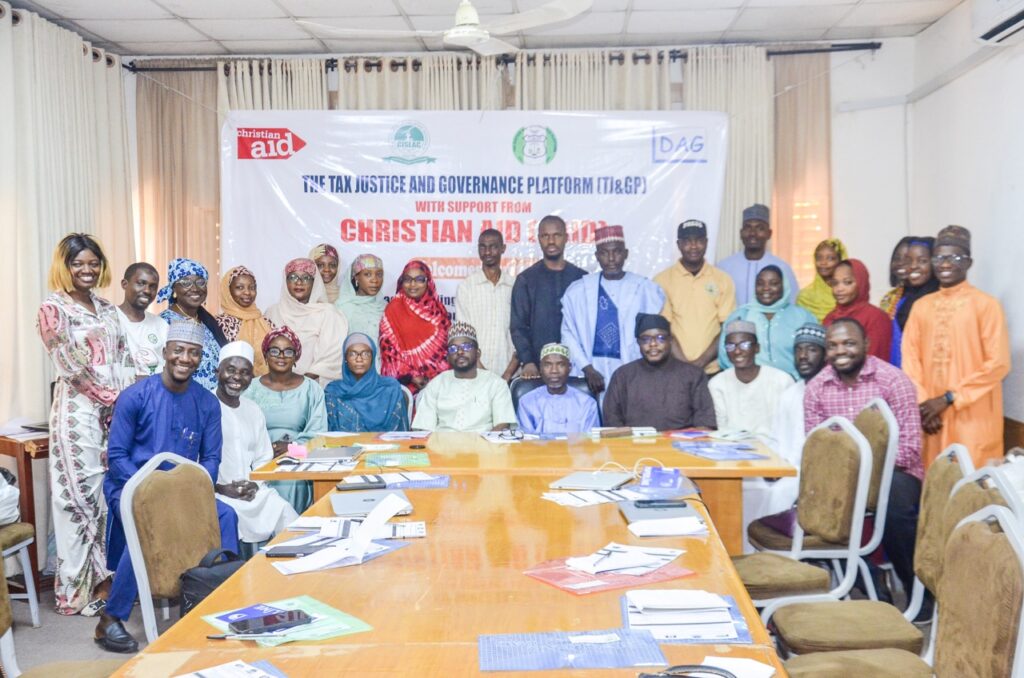By Mustapha Salisu
The Tax Justice and Governance Platform (TJ&GP) in Kano State has organized a two-day capacity-building training for civil society organizations and the informal sector to advocate for gender-responsive tax reforms.
The workshop was held on Tuesday and Wednesday at Aminu Kano Centre for Democratic Research (Mambayya House), Kano.
Speaking at the event, Sadiq Muhammed Mustapha, Program Lead of TJ&GP, explained that the training followed a gender perspective analysis study conducted in Kano to assess how taxation impacts men and women differently.
He emphasized the need for a gender-centered tax framework to ensure that tax assessments align with individuals’ income levels rather than direct assessments, which often disproportionately affect small-scale businesses, particularly those operating at the nano-business level.
Mustapha highlighted the importance of digitalizing the tax system to minimize physical interactions between taxpayers and tax authorities, thereby reducing revenue leakages and encouraging voluntary tax compliance.
He also proposed a Tax-for-Service model, where market leaders would remit a portion of collected revenue to the government, which in turn would reinvest in the same business communities. According to him, this approach would enhance public trust in the tax system by demonstrating tangible benefits from tax contributions.
Commending the Kano State Internal Revenue Service (KIRS), Mustapha acknowledged their efforts in digitalizing tax administration, implementing e-automation, and launching mobile service centers to provide real-time assistance to taxpayers.
On her part, Asaolu Dolapo Dorcas, the Program Gender Officer at the Civil Society Legislative Advocacy Centre (CISLAC), emphasized the need to strengthen the capacity of civil society organizations, particularly women-led groups in the informal sector.
She noted that since a significant portion of the informal sector comprises women-led businesses, taxation policies must consider gender dynamics to ensure fair and inclusive taxation.
Dorcas stressed that gender-responsive taxation is not just about women but includes men, persons with disabilities, and other vulnerable groups. She highlighted key challenges, including multiple taxation, revenue leakages, economic empowerment of women, and the need for tax-for-service, as critical areas requiring urgent attention.

